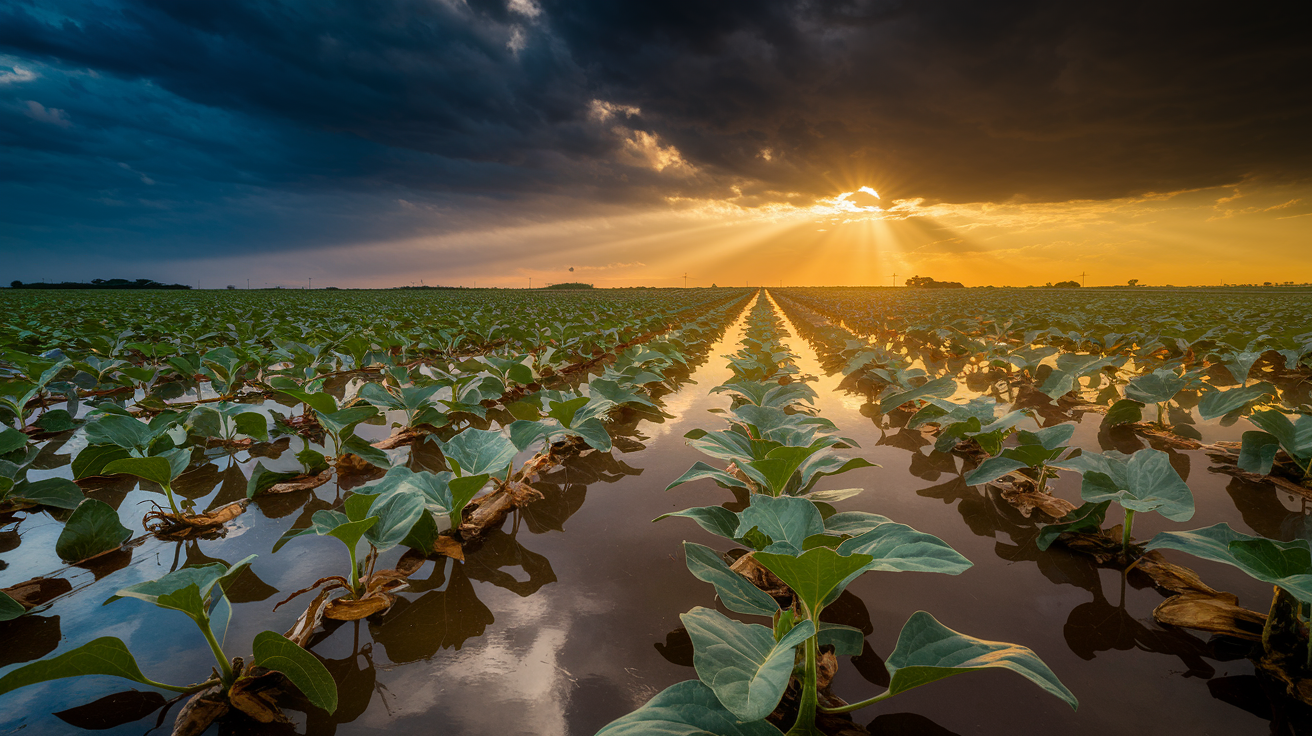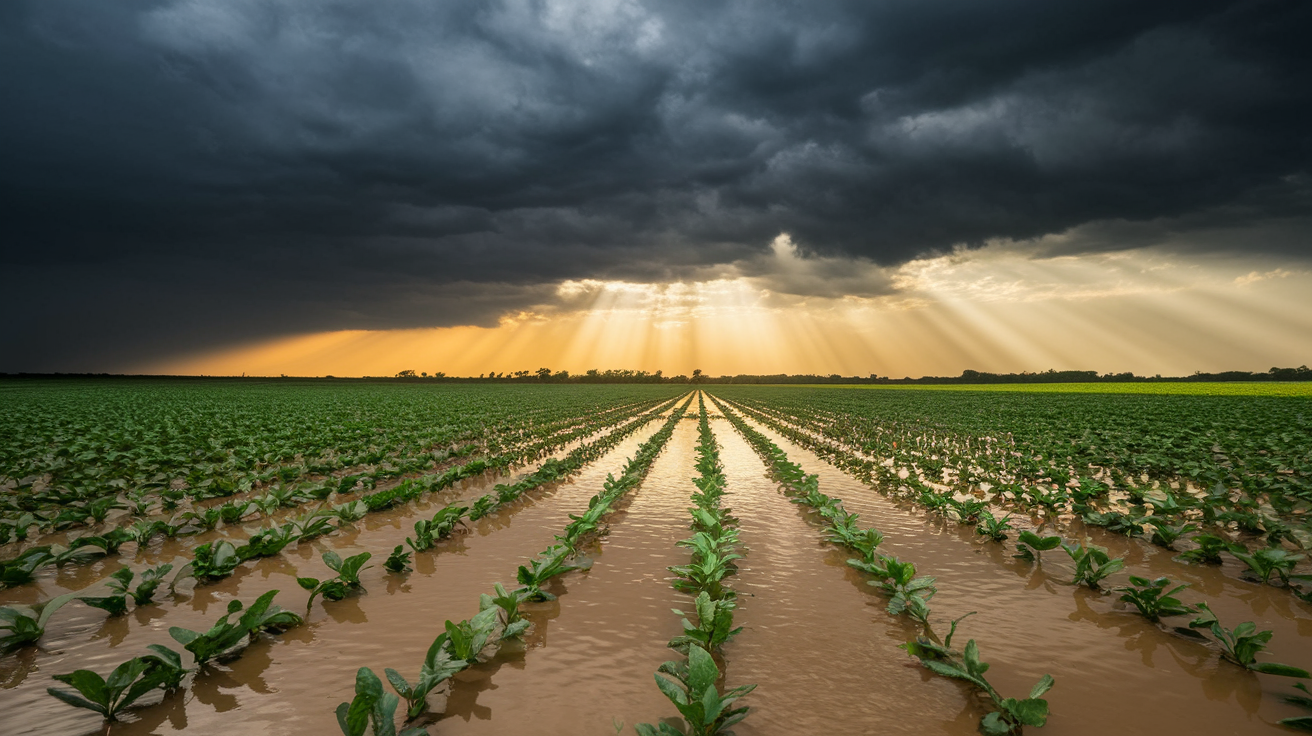The agricultural industry in Brazil and Argentina is at the forefront of global challenges related to climate change and trade policy. These two South American countries, renowned for their significant contributions to the global agricultural sector, face extreme weather conditions and geopolitical shifts in trade. While Brazil grapples with droughts and floods, Argentina is experiencing heatwaves and soil degradation that impact agricultural productivity. At the same time, trade agreements and conflicts present both risks and opportunities. These dynamics significantly affect agricultural stock performance and are crucial for investors.
Climate Change: Challenges and Opportunities for Agricultural Stocks in Brazil and Argentina

In the dynamic world of agriculture, Brazil and Argentina play a crucial role, with climate change increasingly emerging as a central factor. These two agricultural giants face similar climate challenges, which can significantly influence not only their production but also the related stock markets.
Extreme weather events represent a significant risk factor. In Brazil, climate change has caused increased droughts and floods that negatively impact crops, particularly soybeans and sugarcane. These fluctuations in productivity not only lead to an unpredictable supply of these key products but also to greater market volatility. The situation in Argentina is similar, where rising temperatures and more frequent heatwaves seriously threaten wheat and soybean production. Soil quality is also compromised, which can have long-term consequences for agricultural efficiency.
Adapting to these new climatic conditions will become a key factor for success. Companies investing in sustainable agriculture and resilient crop varieties can gain a competitive edge. These adaptation strategies are closely monitored by investors, who are increasingly willing to invest in companies that leverage technological innovations to tackle climate challenges. Such investments could lead to stabilization and possibly an increase in stock prices, particularly for companies that take a leading role in sustainable production.
However, Brazil and Argentina differ in their regional expressions. While Brazil faces the expansion of agricultural land in regions like the Cerrado, Argentina must tackle the challenge of protecting its traditional farming areas while optimizing production. The future of agricultural stocks in these countries crucially depends on their ability to address these challenges and create sustainable economic models.
Overall, adaptability and innovation are key to mitigating the negative effects of climate change. Although the risks are undeniable, they also present opportunities for companies and investors willing to invest in a more sustainable future.
Trade Policy as a Driver and Hindrance for Agricultural Stocks in Brazil and Argentina

The functions of trade agreements, tariffs, and exchange rate policies are fundamental to the performance of agricultural stocks in Brazil and Argentina. These two countries, as powerhouses in the global agricultural sector, depend on favorable trade conditions to sustainably increase their exports. Trade agreements with large economic alliances such as the European Union open up new markets for these countries and strengthen their position in international trade. The advantage of such agreements lies in the removal of trade barriers, which facilitates the export of key products like soy and sugar from Brazil and wheat and corn from Argentina.
However, stringent trade tariffs, such as those increased due to trade conflicts between the United States and China, can significantly compromise the trade volume of both countries. Such obstacles lead to a decrease in demand for exported goods and thus create pressure on the stock prices of the affected agricultural companies. Additionally, the volatility of exchange rates is a double-edged sword. While a weak Brazilian real or Argentine peso tends to strengthen export capacity by making local products cheaper abroad, the associated inflationary risks are considerable.
In Brazil, agriculture greatly benefits from the increasing demand for soybeans from China. Conversely, a change in economic relations between China and Brazil, for instance due to trade tariffs or greater competition from other exporting countries, could shake the stock markets. The Argentine economy faces similar challenges. Frequent economic turmoil and fluctuations in exchange rates and the associated inflation significantly complicate agricultural production planning and profitability.
The regulatory conditions arising from stringent environmental and social regulations cannot be underestimated. These often inflate production costs and impact the efficiency of farms, which ultimately reflects in stock prices. A well-coordinated trade policy can therefore provide opportunities while also presenting significant challenges that must be managed strategically to optimize competitiveness and, consequently, stock values in both countries in the long term.